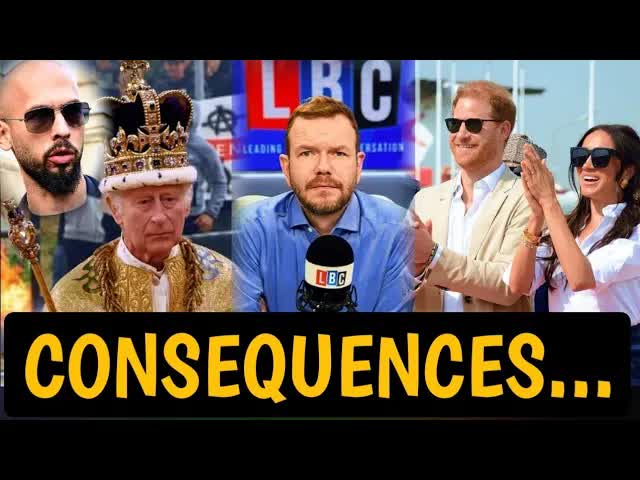In recent days, the United Kingdom has been rocked by alarming far-right riots, a disturbing trend many believe is rooted in years of anti-immigrant sentiment.
This tension escalated notably after a member of the royal family, Prince Harry, married biracial American actress Meghan Markle, which seemingly polarized public opinion and exacerbated existing prejudices.
The backlash against Harry and Meghan has not only impacted their lives but has also influenced the broader narrative surrounding race and immigration in the UK.
Prince Harry once poignantly stated that the global perception of Britain hinges on the integrity of its press and government.
Unfortunately, both are currently under scrutiny, with many arguing that they have reached an all-time low.
The media landscape in the UK has played a significant role in fostering an environment rife with hostility.
Social media platforms have become breeding grounds for vitriol, with hateful rhetoric proliferating unchecked.
It’s a classic case of hate begetting hate, and the recent riots are a stark manifestation of this cycle.
Critics assert that the UK media has perpetuated a culture of animosity, leading some segments of the population to accept these extreme views as normal.
The portrayal of immigrants and asylum seekers has been particularly damaging.
When Harry and Meghan expressed their intentions to visit Nigeria, the media’s response was filled with alarmist warnings about the country’s dangers.
Ironically, as the UK grapples with its own safety issues, several nations, including Malaysia and Australia, have issued travel advisories cautioning against visiting Britain.
The irony is palpable.
While the UK media has demonized other countries, it now finds itself in a precarious position.
James Sobran, a keen observer of the media landscape, highlights the hypocrisy of those who incite violence while simultaneously feigning concern.
He argues that these individuals have built careers on sowing discord and that their warnings about the current unrest ring hollow.
They have long vilified vulnerable populations, labeling asylum seekers as “illegals,” thereby dehumanizing those fleeing violence and persecution.
Sobran’s criticism extends to the media’s treatment of Meghan Markle, who faced relentless scrutiny and racism during her time in the royal family.
The suggestion that her American heritage was a barrier to acceptance speaks volumes about the entrenched biases within British society.
This narrative has been fueled by a media apparatus that thrives on division and sensationalism, making it all too easy for the public to adopt prejudiced views.
In a recent tweet, Sobran emphasized that the real warnings about the consequences of unchecked racism have come from those marginalized by the very system that seeks to silence them.
He points out that the bigots who have profited from spreading hatred are now reaping what they have sown.
The voices of reason have long been drowned out by a cacophony of ignorance and misinformation, often cloaked in more sophisticated language.
It’s crucial to recognize that while protesters may voice their opinions in simple terms, the media’s elite columnists and broadcasters wield a far more insidious influence.
Their rhetoric, often laced with bigotry and devoid of facts, has contributed significantly to the current climate of fear and division.
Sobran’s description of these narratives as “fact-free and ignorant” captures the essence of the problem; the media’s complicity cannot be overlooked.
As the situation unfolds, it’s evident that the ongoing struggle against racism and xenophobia is far from over.
Prince Harry’s legal battles against the UK press serve as a reminder of the perils of allowing unchecked power to fester.
His commitment to fighting back against the media’s malicious portrayals of his family underscores the urgent need for accountability and transparency.
Amidst the chaos, it’s worth noting that King Charles, as the head of state, has remained conspicuously silent.
His lack of condemnation for the violence and racism erupting in England raises questions about the royal family’s commitment to addressing these pressing issues.
The absence of a strong stance against racism, especially in light of Meghan’s experiences, paints a troubling picture of the monarchy’s priorities.
The recent statements from public figures like Andrew Tate further illustrate the complexity of racial dynamics in the UK.
Initially dismissive of claims of racism, Tate has now found himself on the receiving end of prejudice, highlighting the pervasive nature of discrimination.
This shift serves as a wake-up call for those who refuse to acknowledge the reality of racism in Britain.
The current unrest in the UK is a sobering reminder of the consequences of a media landscape that thrives on division and hatred.
As the nation grapples with its identity, the question remains: how will the UK confront its deep-seated issues of racism and intolerance?
The path forward requires honest dialogue and a commitment to change, lest history repeat itself.










